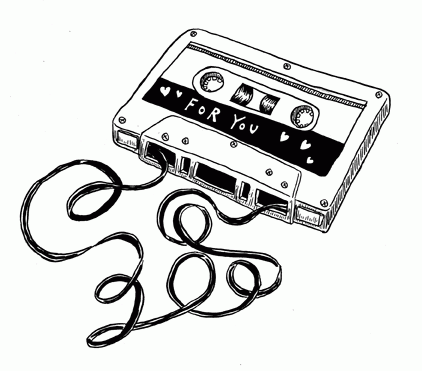Internet clown Neil Cicierega released “Mouth Moods” about two weeks ago, and so far it’s my favorite album of 2017.
This isn’t a massive accomplishment considering my runner-up is a lukewarm Flaming Lips album on which the best song features Miley Cyrus, but it’s also not an insignificant achievement for an album that samples Nine Days, Vanessa Carlton and Smash Mouth.
“Mouth Moods” is a mash-up album that twists pop music, mostly from from the late 1990s and early 2000s, into bizarre and usually hilarious new forms. “Walk the Dinosaur” by Was (Not Was) gets mixed into the Beatles. Hot Butter melts into Drowning Pool. The Barenaked Ladies’ “One Week” makes a couple of appearances.
While these samples are eclectic and the popular consensus agrees they’re awful songs, somehow they hang together to capture a singular strain of internet nostalgia that I think I love.
An article called “How the Internet Uses Nostalgia” by The Atlantic described two distinct varieties of nostalgia. One, the author called “organic.” This is nostalgia in its truest form. It’s the kind you feel when you drive past the house you haven’t lived in for years.
Or, if you prefer to experience the human condition exclusively through Disney movies, it’s the flashback the curmudgeonly food critic from Pixar’s “Ratatouille” has when he eats that titular dish. It’s completely genuine and very rare.
More common is media-produced nostalgia. That’s what you feel when you see that Netflix has revived "Full House" or that Columbia has reissued the Clash’s discography. It happens when a corporation invents a CD, DVD or Blu-ray-shaped void in your heart — who really needs another version of “Dark Side of the Moon?” — to try to sell you something. This nostalgia is more frequently experienced because advertisers know it works. It’s probably why I own the "Star Wars" saga in three different formats.
But "Mouth Moods" is especially confounding.
Cicierega obviously isn’t trying to invoke precious childhood memories, so the nostalgia isn’t organic. The hypothetical sample clearance memo for “Mouth Moods” includes the Proclaimers, Oasis and Dead or Alive. While we still keep these artists in the public consciousness, we see their biggest hits more as commercial products than as distinct songs with actual emotional value.
None of the songs Cicierega samples mean anything to anyone anymore.
You might think that Cicierega’s trying to evoke nostalgia as a media product. Again, I don’t think that’s the case. He isn’t trying to sell us anything – he’s giving his mixtape away for free – and licensing these goofy remixes seems either profoundly dumb or outright criminal.
But in mining the entertaining but ultimately vapid smash hits of the late '90s and early 2000s, he’s tapping into our collective musical memory with the two dominant forces of internet culture — nostalgia and irony.
It’s the great push and pull of our time — or at least our time spent binging entertainment on the internet — and it’s confusing.
I’m nostalgic for the 1990s, but I’m not sure if that’s based off an accurate assessment of the decade or if I’ve simply bought into a media invention. You’d think a ‘90s kid like me would remember, but I don’t. I un-ironically love “All-Star,” even if it’s probably the fight song for post-ironic meme culture.
The internet encourages both of these strange and frightening passions, even though they should be completely opposed to each other; nostalgia is unguarded and heartfelt, and irony is defensive and subversive.
But the two mingle on the internet. The computer fosters an environment where time is so compressed that music only a few years old is worth reminiscing about, and memes have become so creative and hyper-specific that you can have a heartfelt love for something probably meant to be sardonic.
Cicierega understands the ache to go back to the old days of CD players and 300MB hard drives but also the urge to laugh at the wide-eyed primitivism of it all.
I call that the great duality of internet culture.
Neil Cicierega just calls it a mouth mood.




